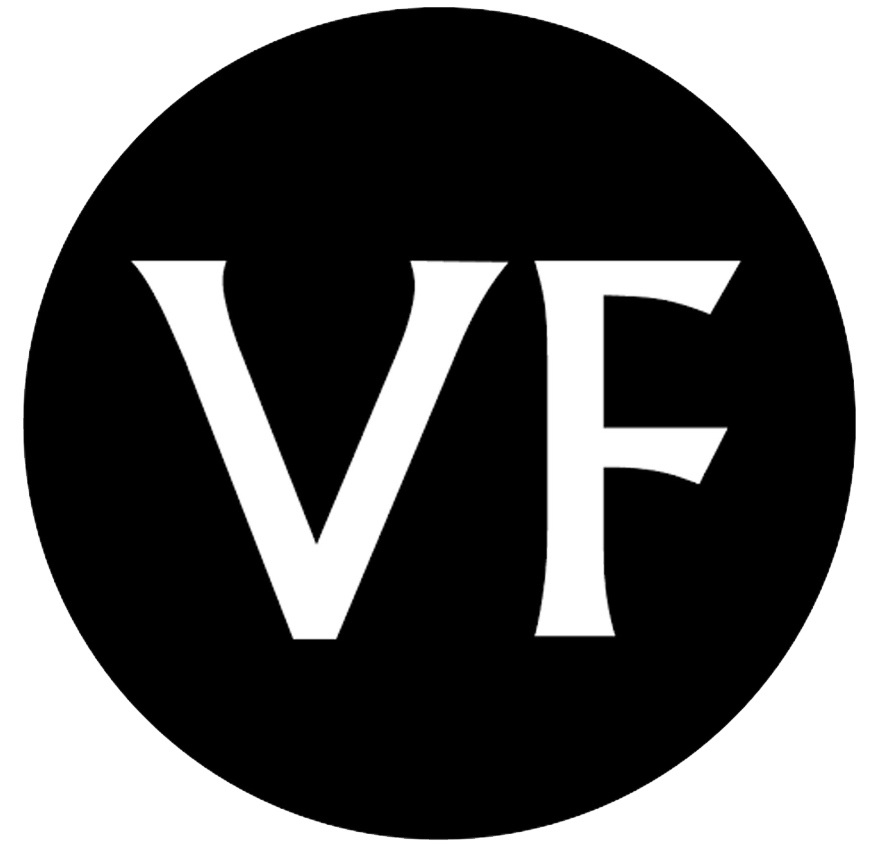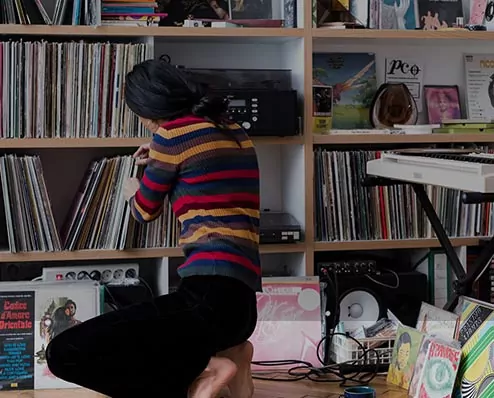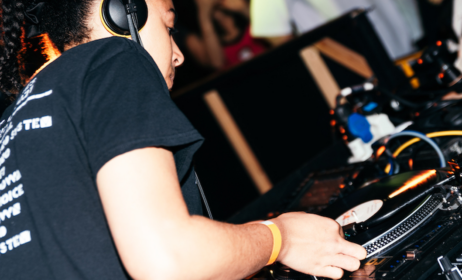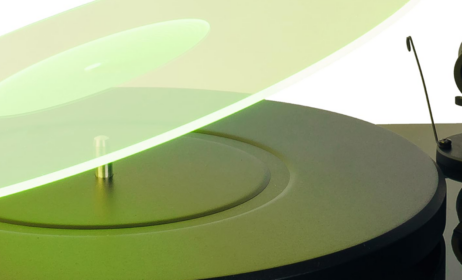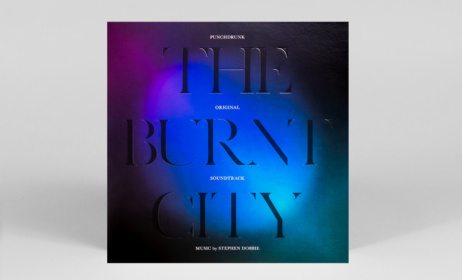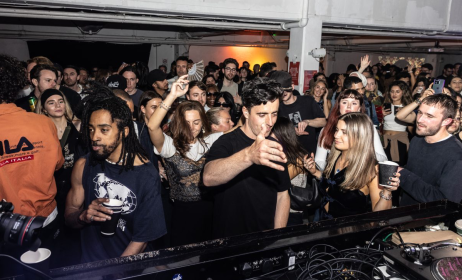Published on
January 27, 2016
Category
Features
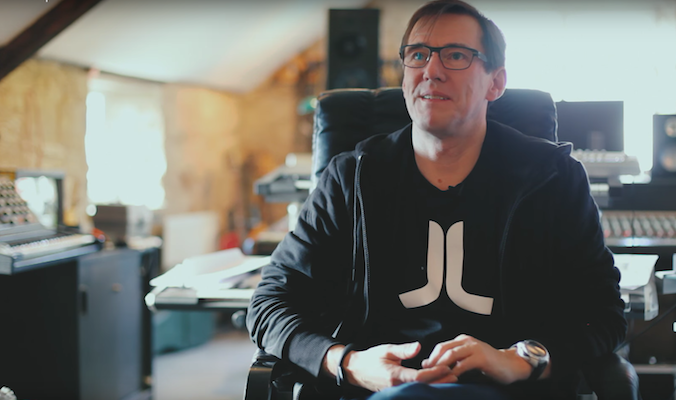
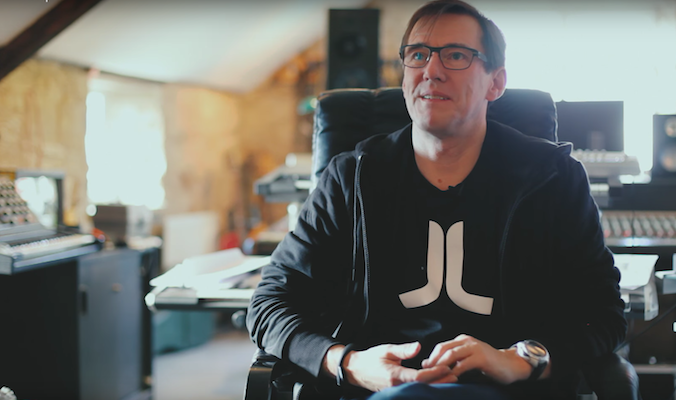
Joy Division and New Order drummer Stephen Morris remembers how Martin Hannett and a set of revolutionary studio techniques defined the sound of Unknown Pleasures and consistently challenged his approach to making music.
Sharing the story of how Joy Division and maverick Factory Records producer Martin Hannett made Unknown Pleasures and reflecting on the technology that changed his role as a drummer for good, Morris tackles the bigger questions of analogue sound and recording, in a digital age where a surfeit of choice can have a paralysing, even homogenising effect on the way music is made.
Interview: Anton Spice
Lots of artists spend a long time searching for the perfect studio space, but you’ve ended up staying in exactly the same town where you were born…
I’ve not really had much of a choice. How did I end up with this place? It would have been good to have a look around and find the best place to put a studio, but I didn’t have that luxury. Before here I just had a little terraced house down the road. I first had a studio in the cellar, which was OK, but the drawback of studios in cellars, apart from the fact that they’re dark, is that they’re prone to flooding. As soon as I had the first flood, I moved it to the attic and that wasn’t good because the neighbours complained. So what happened? We just moved house, and this place had somewhere we could put the studio so we thought that’ll do.
It seems like you’re very good at adapting to the space as it develops rather than coming with a pre-formed idea?
I’d like things to be organised but unfortunately for some reason over the years I’ve developed this way of working which isn’t organised. I don’t know why it’s like that. I’ve got this chaotic way of working and I should see a doctor about getting cured because I would be a lot more productive if I had a method.
Where do you think this came from?
I think I inherited it a bit from Martin Hannett who was an amazing producer and I have learned loads from him. He very much had the philosophy of using the studio as an instrument. You’re not just going in there just to record a song, you’re experimenting. Martin was very much into twiddling knobs and cackling. He wasn’t particularly methodical either, because you didn’t really know what the stuff would do. He loved turning knobs and making funny noises.

And he had a particularly close relationship with you in developing that specialist drum sound?
Probably because he didn’t really know what he wanted, he wasn’t very good at explaining. You can see now with the benefit of hindsight what he was getting at and what he wanted.
At that time he wanted complete separation. He wanted the bass drum on its own with nothing, no spill, so he could treat it one way and treat the snare drum another way. He wanted it as clean and as treatable as he could get it, which meant you couldn’t really play a drum kit because you would get spill. And you could forget playing cymbals. You had to basically take the drum kit to pieces and play each bit separately. At the time I thought he was just doing it to drive me mad – which he did, quite successfully.
The end result was great, but I don’t think he knew what the end result was going to be, he just had this idea and forced it through. Occasionally he’d let me not do that just to save time, but if we were in all night he’d mess about taking the pedal to pieces because it squeaked. But I liked the squeak!
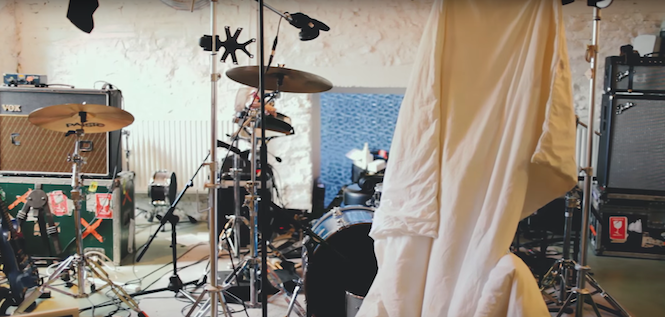
The idea of the studio as an instrument was an important development throughout the ’70s.
From sort of 1974 onwards you had people experimenting, particularly like Conny Plank in Germany, who was just doing amazing things with Neu. Basically any decent records that came out of Germany from 1974 has got Conny Plank involved in it. He was fantastic, loads of people eventually went to work with him because he was one of those experimental producers and Martin was very much like that.
The thing about Conny was that he had his own space and his own studio, but Martin was a bit at the mercy of where he could get in and all he had was his little bits of gear. He would have loved to have had his own studio.
Is it possible to sum up his influence on how the sound of Joy Division evolved in retrospect?
It sounded completely different. You can hear it if you go an buy the bootleg Warsaw album which is basically Unknown Pleasures the way we would have done it. It’s very raw and very unproduced and it sounds absolutely nothing like the way Martin did it. He was very conscious of making his own sound, but we’d have conversations about west coast records the way that they had a particular sound. He likened it to Elektra, when they started off, because Elektra Records had that kind of folky weird psychedelic sound that he wanted Factory Records to have.
When you go and see a band live you want to be pinned to the wall, which is what Joy Division did, it was really really intense. But that kind of thing wouldn’t really work as a record – if you listened to it more than once, you’d never want to listen to it again. So he took that rawness and turned it into something that was a lot more in your mind, a lot more cinematic than we would have done it.
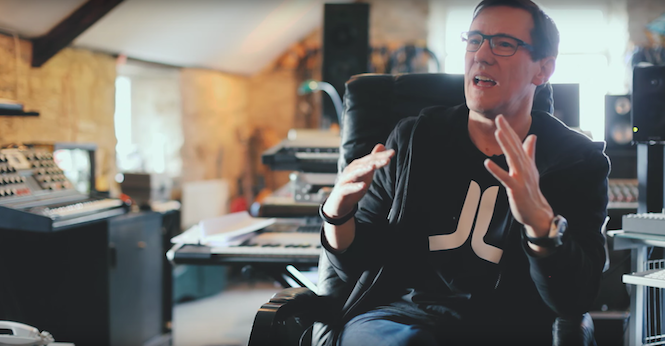
Did it take longer to do it this way?
No, I think we did it in about two weeks. It was done really really quickly, and it’s easy when you’re young to do things quickly because you’re boiling up with all this stuff that you want to get out. If it’s your first album you’ve had all of your life up to that point to do it and you just want to get it done. And I think Martin exploited that, our youth and naivety.
Were you pleased with how it turned out?
I was personally, I thought it sounded great. I think Bernard [Sumner] didn’t like it, Hookey didn’t like it, Rob [Gretton] liked it and Tony [Wilson] liked it, and I think Ian [Curtis] was probably a bit like that back then as well, because it sounded so different to what we had expected.
Martin didn’t really like any of the band being there when he mixed, which was very much an old school producer thing, that the band just turn up and play and clear off. It was a bit like that, but we wanted to be there and he’d just ignore us.
Were there other reference points in terms of production?
One thing that you have to remember, which was of massive influence on what we were doing and probably what everyone was doing, was dub music coming out of Jamaica. Everybody was into dub and you’d listen to it and wonder how they’d done that. So we’d listen to a lot of dub records and that whole concept that the producer was in charge and he’d take a record and just mangle it. That was a big thing, using the studio that way to transform something.
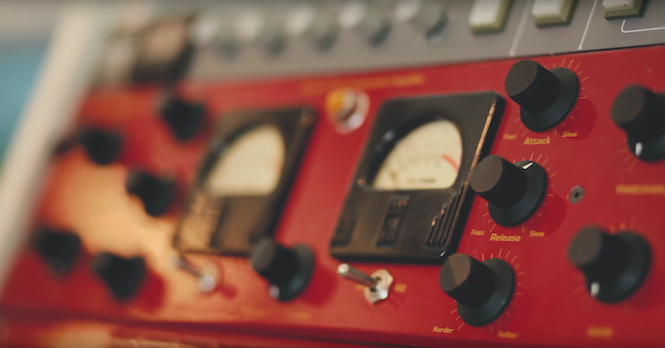
That’s interesting because it’s not the most immediate or obvious of influences.
No, but you have to remember that everyone was into dub. Everyone was into reggae records, and when you went to a punk club, the records that were played were 50% punk records and a little bit of reggae and a lot of dub.
At that particular time, ’74 to the beginning of the ‘80s it was a really creative time to be doing music because there was a lot of new gear coming out and you were kind of… actually it was very frustrating. You could see so much potential, and you knew that there was technology around to do it, but because it wouldn’t do it, you were forced into finding ways of using what you had to make the sound that would be around in three years time.
The studio became a place of experimentation as well as an instrument itself.
That was what came out of working with Martin because up until that point you came to the studio played the song, went home and that was it and the record sounded pretty much like you heard it when you played it. We were very naïve when we started. We’d use a 24-track studio, but had started off with 16 tracks and didn’t see it with any kind of handicap. Now if it’s under a hundred tracks you’re lucky. The kind of lack of technology was also a very creative thing, because it forced you to use your limitations, you had to be creative.
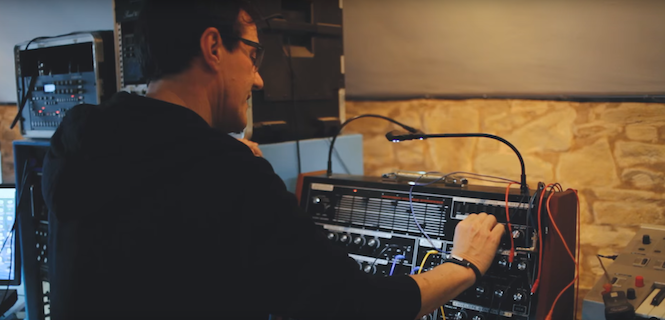
That idea of having a limitation comes up a lot from people who still want analogue gear. In a creative world with very few limitations, those restrictions allow you to be more creative.
It does. It’s the main thing. It throws it back on you, really, to squeeze every last bit out of the gear, which is what we did early on. The gear didn’t do what we wanted it to do but we took it to its limits.
And having more choice can paralyse you.
Absolutely. Paralyses by hyperactivity, because you’ve got so many choices and possibilities, you have to go through every one of those possibilities, and then you become paralysed because having gone through every one of those possibilities you have to decide which is the best. And unfortunately we’re not very good at deciding. Most people are either a) incapable of deciding or b) incapable of telling the difference between the myriad of choices on offer.
Whereas, with analogue gear, the equipment makes the decision for you?
It does. I just make this noise. If you don’t like it, don’t use it.
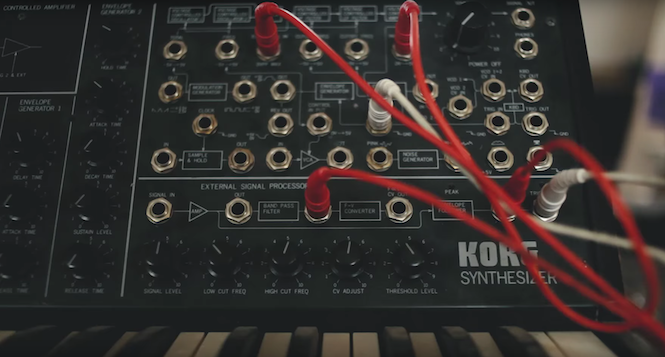
So the advent of drum machines must have been made for a challenging time for you as a drummer. Was the writing on the wall, so to speak?
I think early on, I went through a bit of a luddite phase really, a bit like the trade union movement, smashing up the looms, because as a drummer I could see where this was going. It occurred to me early on. And don’t get me wrong, I love drum machines. And I had this sort of epiphany, when the LinnDrum first came out, the digital drum machine. And I think it was on the Old Grey Whistle Test, Stevie Wonder was using one and Stevie Wonder is a brilliant drummer and he was programming this LinnDrum and I thought, brilliant I’ve got to have one of those. And then suddenly it dawned on me that if everybody’s got one of those, there’s no need for a drummer anymore. They sound exactly like drums.
The great thing about drum machines for me was that they’re very childlike, they sound like cartoon drums, they don’t sound anything like proper drums and you don’t do proper drum things on them. But once they started to say ‘we want to sound a bit like you’ I got a bit worried. Then when sampling time started getting a bit longer you could get a couple of bars of a drum riff, so what am I going to do!? That’s me redundant.
That must have been a fairly disturbing moment for you.
That was it. At the beginning of the ‘80s working in a studio, you couldn’t work in a studio without this guy who was a drum programmer. And I could do it myself, I had a LinnDrum but drummers were a dying breed. Drum programmers dropped the drum bit and just became programmers.
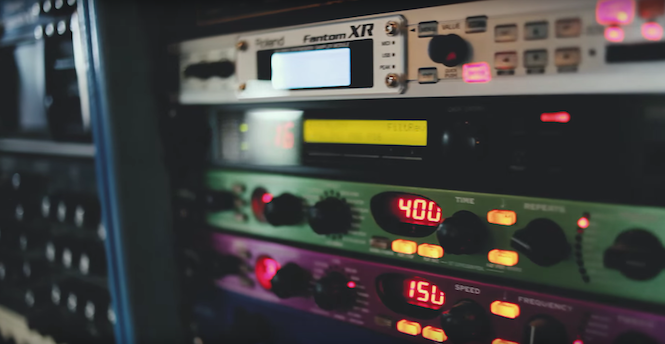
Was that already the case for Power, Corruption and Lies?
Yeah, that was Power, Corruption and Lies, it was kind of like us moving on into ‘Blue Monday’ territory, which was just drum programming really. And I’d done it to myself. What have I done? I’ve done a record that I’m not on! That was my luddite moment.
What was special about that record for you?
Well that was very much a cross-over record, because even though we were using this digital technology, the drum machines were as far as it went. In terms of the rest of the studio, it was still completely analogue, we were still recording it on a 24-track tape.
What happened at that time was Sony brought out the PCM-1610 which was the acme – it doesn’t sound any better than this. It was massive, with a massive U-matic recorder and you listened to it and at the time you thought “wow, this sounds fantastic”. The thing that it had going for it was that you could copy it and copy it loads of times without it losing anything.
Do you think your environment played a role in the sound of the music you made with Joy Division and then New Order? Everything happened in a very local area.
Oh yeah, your environment comes out, whether you want it to or not. That fact that we stayed in Manchester, subconsciously, if that’s the word, it’s like water, it finds its way out somewhere and the fact that we didn’t want to go to London because there was no need. Rob and Tony were very politically Mancunian, you know “London’s shit, it’s all full of music business arseholes”. The DIY ethic was very much what appealed to me about Factory.
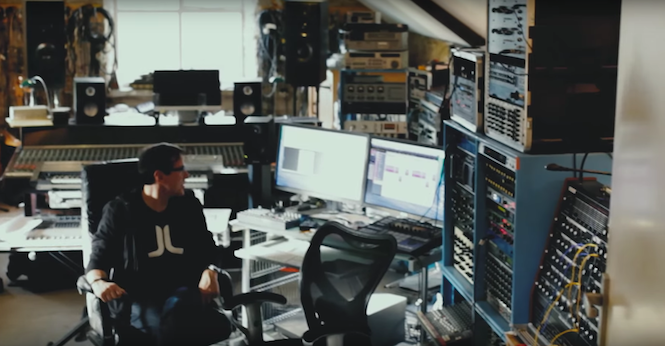
At what point did you start thinking about your own studio? Did that have an impact on the way you think about music?
We started doing that with New Order, because Martin did encourage us to do that. He’d say you needed a desk, because with Joy Division we didn’t even have a cassette player when we started. The thing is when we started, you carried the songs about in your head and then eventually you moved onto a cassette player so you actually had a record of what it was supposed to sound like. Then we got a four-track and after that we just hired a desk for a day and then we built a rehearsal room around this desk. There has always been this line in the sand that gear was for demos but it’s not proper.
How do you use your studio?
Me using this to turn into a proper studio was running in parallel to proper studios biting the dust as technology had shrunk to the level that you could do a record in your bedroom. You can do a record on your computer. It might not be the best record in the world but you can do a record and that’s fantastic. But the trouble with doing stuff on the computer, and you don’t realise it’s happening to you, but you’re writing songs on a spreadsheet. But everybody does it and you end up with music that just sounds the same basically.
The great thing about music in the ‘70s, and I sounds like an old man going on, was that music was really quite diverse, there was a lot of innovation going on but it sounded very different. But now, it’s all got very narrow. There is some very extreme stuff about but there’s nothing in between.
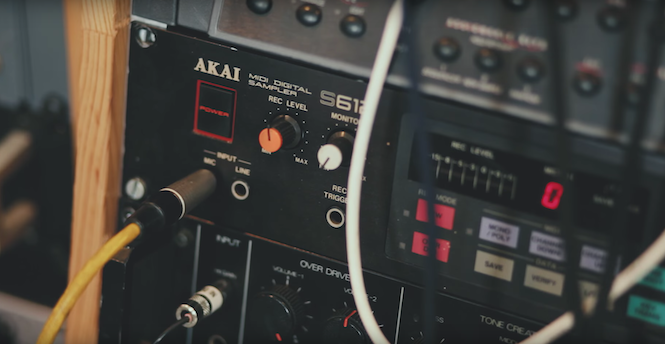
Is that what has kept you interested in this equipment?
I just like the thing about having a machine that is very physical and tactile and you get that thing of “if I do this I don’t quite know what that will do but it might be good.” You’re just messing about with parameters and things like that in a way that you’ll never get on a computer.
